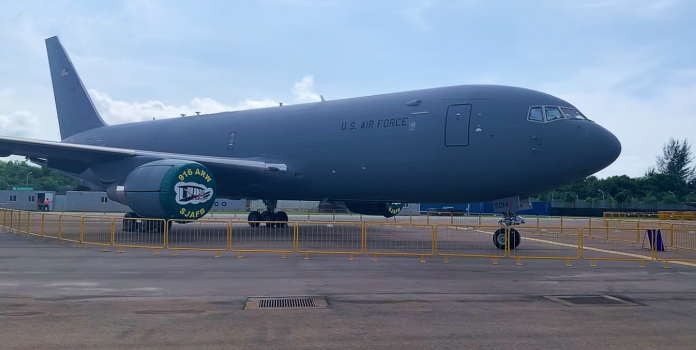(Greg Young, Publius PR) When the universe is trying to tell you something, it’s good to listen.
The universe is clearly trying to warn Americans that we must be able to fend for ourselves; allies are nice, but we can’t put our security in their hands.
The situation in Ukraine right now and the disruption caused by the COVID-19 pandemic are jarring and should be a wake-up all for Americans that we need to invest domestically in oil production, secure communications needs and American-made military hardware.
Take a step back and think about all the products you’ve wanted, but been unable to get quickly, since 2020. Everything from computers to cars, from lumber to toilet paper. Empty shelves at the grocery store and that gift that arrived days after you wanted to give it to someone on their birthday. The culprit, we’re told over and over again, is a break in the global supply chain.
Fair enough. Not everything can be made in the next town over, or even the next state over. Some things must be imported from across the country or across the ocean. Also, we’ve learned to live, for periods of time at least, without each of these products.
But we cannot live without the United States military. That means we need to make our weapons here, so we never run into foreign supply-chain issues.
American companies have been handling military contracts for decades. The American military probably hasn’t needed to depend on allies for weapon systems since World War I, when our troops went to France without some important weapons such as airplanes.
By World War II the U.S. was the “arsenal of democracy” furnishing the weapons for all of its allies. It’s been that way ever since. Americans still design and build the best weapons and we make the weapons for allies in Asia, Europe, Africa, and the Middle East.
Now, however, a vital military contract may end up in foreign hands.
Some policymakers are trying to hand a tanker contract to the European company Airbus, which promises to build an assembly line in the United States. The idea is it might create some jobs. That is fine as far as it goes, but it is important to remember that the plane itself would be designed and begun in Europe.
“The Airbus tanker is built on a commercial assembly line and then modified at a different location,” military analyst Loren Thompson wrote. “Installing all the necessary features, such as offensive and defensive systems, is likely to generate unusual engineering challenges.”
Furthermore, the plane would need to be shipped here for assembly. That creates a huge vulnerability by opening up a supply chain that, in time of war, our enemies could look to shut down.
There is no need to even have this conversation. The Air Force has an excellent tanker contract already, with an American military contractor. The KC-46 design is already in service and is cleared to refuel most of the aircraft the Air Force flies. All we need to do is make more of them here, on the secure assembly line that is already running in the U.S.
This is not to say that there haven’t been problems with the KC-46. There are always challenges with any new aircraft design. However, an important point to remember is that those problems have been worked out and the plane is now delivering fuel in the skies.
If the military turns to Airbus in a misguided attempt to “diversify” its tanker fleet, the newer design will have to start from square one. All its kinks would need to be worked out over time and in the air. That creates risks we don’t need to take.
Testing a new design would be expensive. Thompson writes that the Air Force has already invested millions in testing the KC-46. It would have to come up with fresh funding to test the Airbus design and make sure it is up to specs. That would make the Airbus plane even more expensive than it is estimated to be.
American forces need weapon systems they can rely on. That means making those weapons right here in the States and eliminating the supply chain risks. For many reasons, the KC-46 tanker is the way to go.
Greg Young is host of the nationally syndicated Chosen Generation Radio Show which airs coast to coast on USA Radio Network. He served as a Russian Linguist in the USAF.

